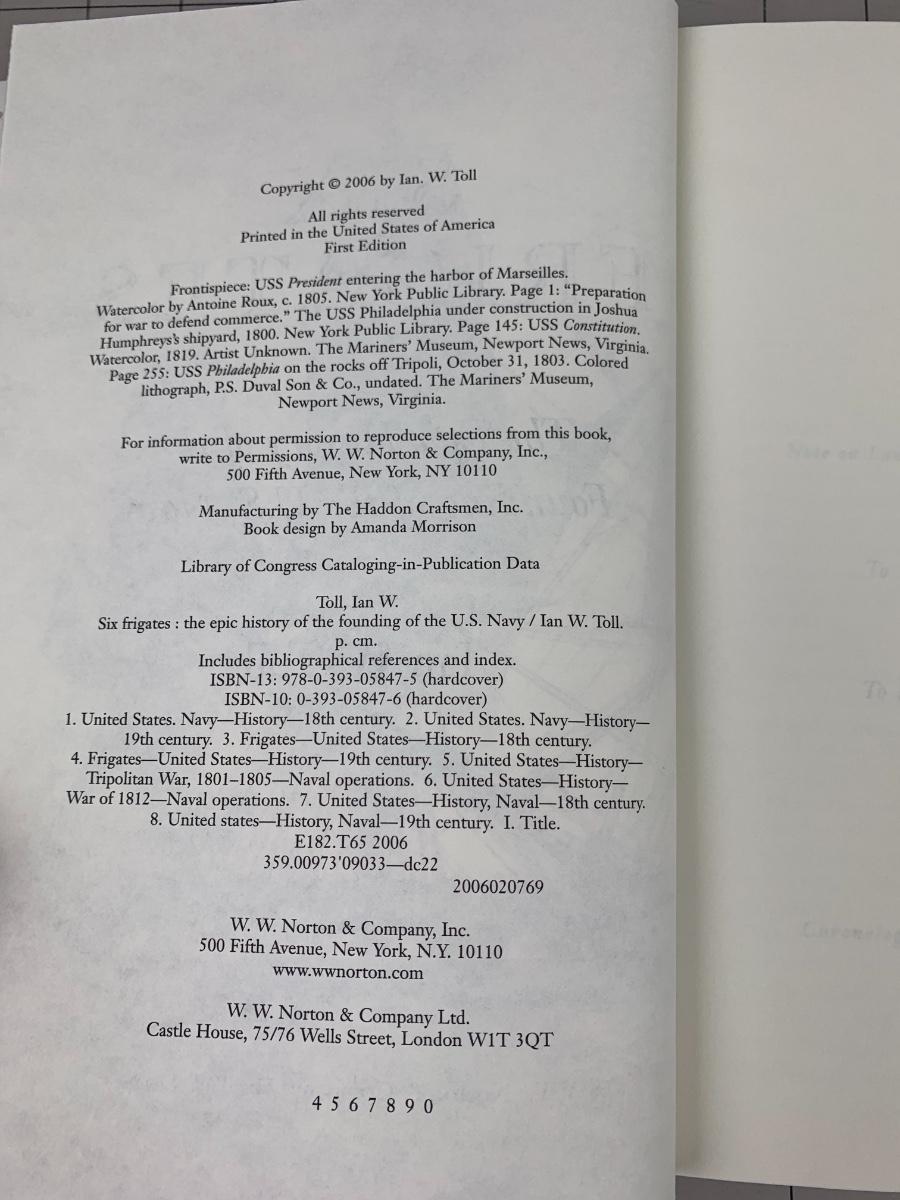

Gilbert TaylorĬopyright © American Library Association.

The maritime strategy and the highly developed sense of officers' honour, which influenced where particular battles occurred, emerge clearly in this fluent account. Toll is as insightful about the essential domestic and diplomatic background as he is with his dramatizations of the naval engagements of the new navy, which produced a crop of national heroes such as Stephen Decatur. Besides money, their construction involved politics the Federalists favored the naval program (creating the Department of the Navy in 1798), while Jefferson's parsimonious Republicans were more diffident. It centers on the first vessels purpose-built for the navy, the half-dozen frigates of which the USS Constitution moored in Boston today is the last survivor.

Navies are not inexpensive, and the costs of building and maintaining ships appear lightly but persistently in Toll's narrative. Navy's formative decades, from the mid-1790s to the War of 1812, rounds out affairs by anchoring the nascent navy to its financial supports.

The War of 1812 helped to define America's sense of itself, and that would not have happened without the construction of Six Frigates.Not confined to sea battles, Toll's history of the U.S. It is also worth noting, as Toll does, that “it was only after the War of 1812 that Americans began speaking of the United States in the singular rather than the plural”. After 1815, the United States moved themselves out of the status of 'bloody colonials' and were recognized as a power to be reckoned with. The United States, by it's naval victories and dogged insistence that it would not give in to being pushed around by anyone, won the respect if not the admiration of the powers of Europe. Toll's narrative covers the political, economic, social and technical challenges that faced shipbuilders, sailors, captains and congressmen that managed the development and operation of the fleet.įrom the last chapter: “What was remembered and cherished about 1812, above all, was the fact that America's tiny fleet had shocked and humbled the mightiest navy the world had every known.” This was the most significant outcome of the War of 1812, which is often overlooked by Americans and British alike. The navy grew as the country grew, by fits and starts, by rising to challenges (The Barbary pirates, Britain and France) and learning from mistakes. Begun in the shadow of the British Royal Navy that was thought to be unbeatable, the American Navy faced challenges of every kind. Starting in the Adams administration and continuing through to the end of the War of 1812, Six Frigates is a well researched and very readable history of the Navy of the United States.


 0 kommentar(er)
0 kommentar(er)
